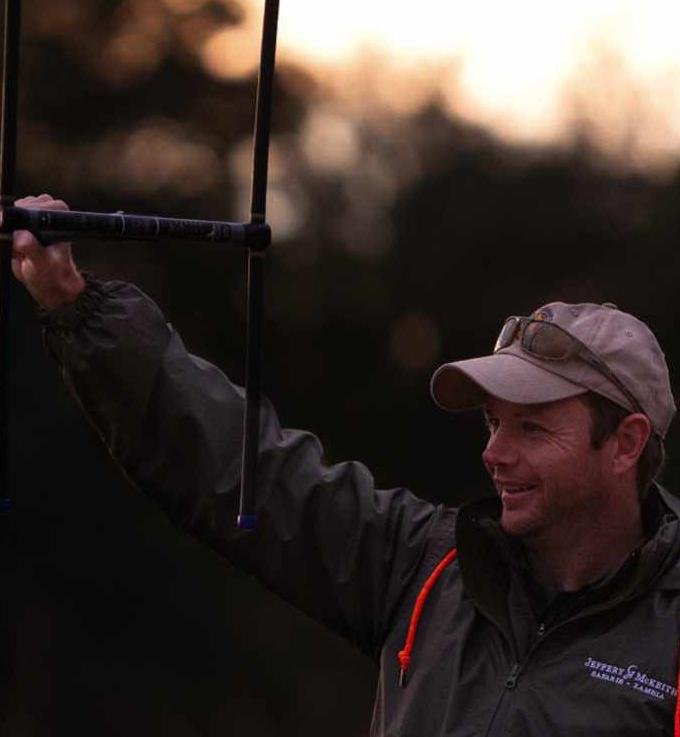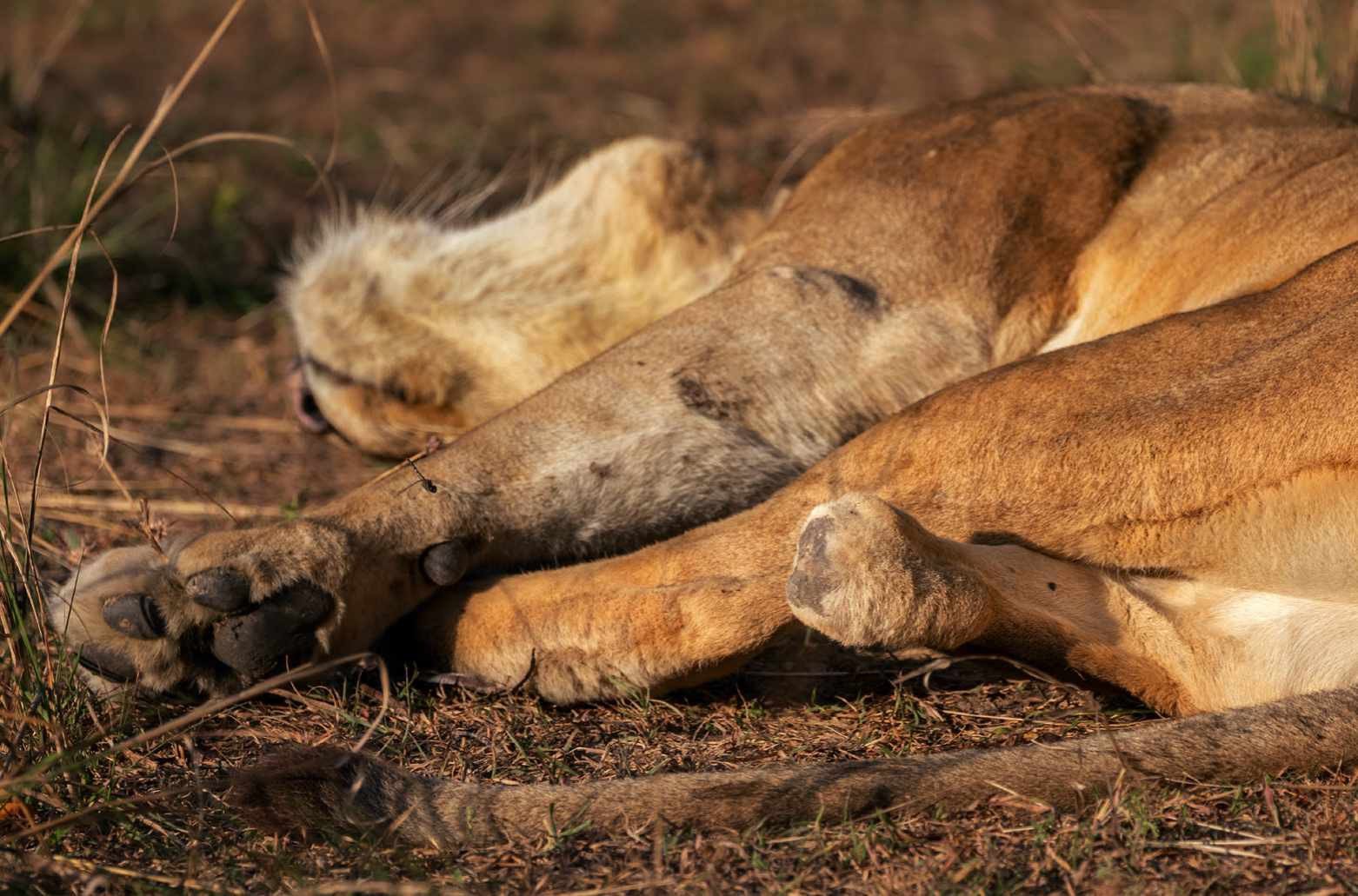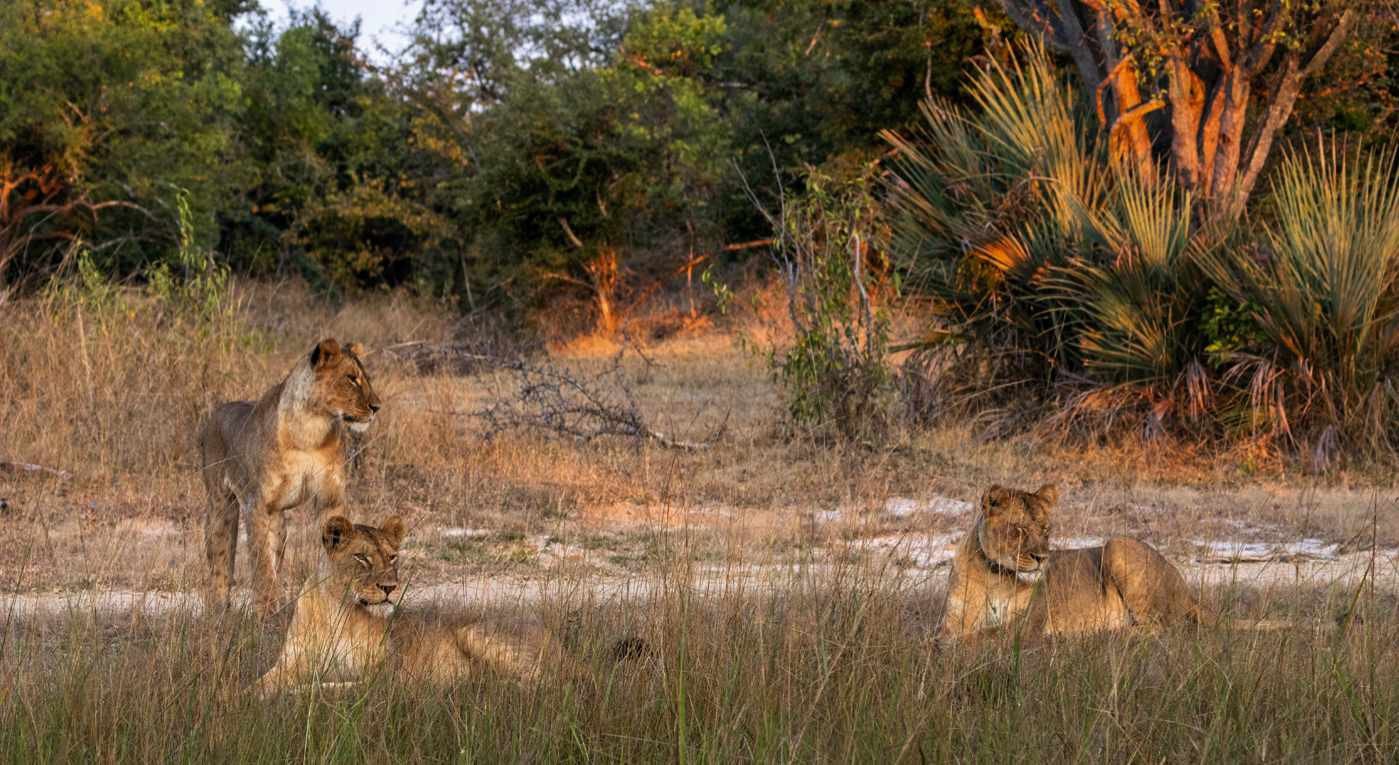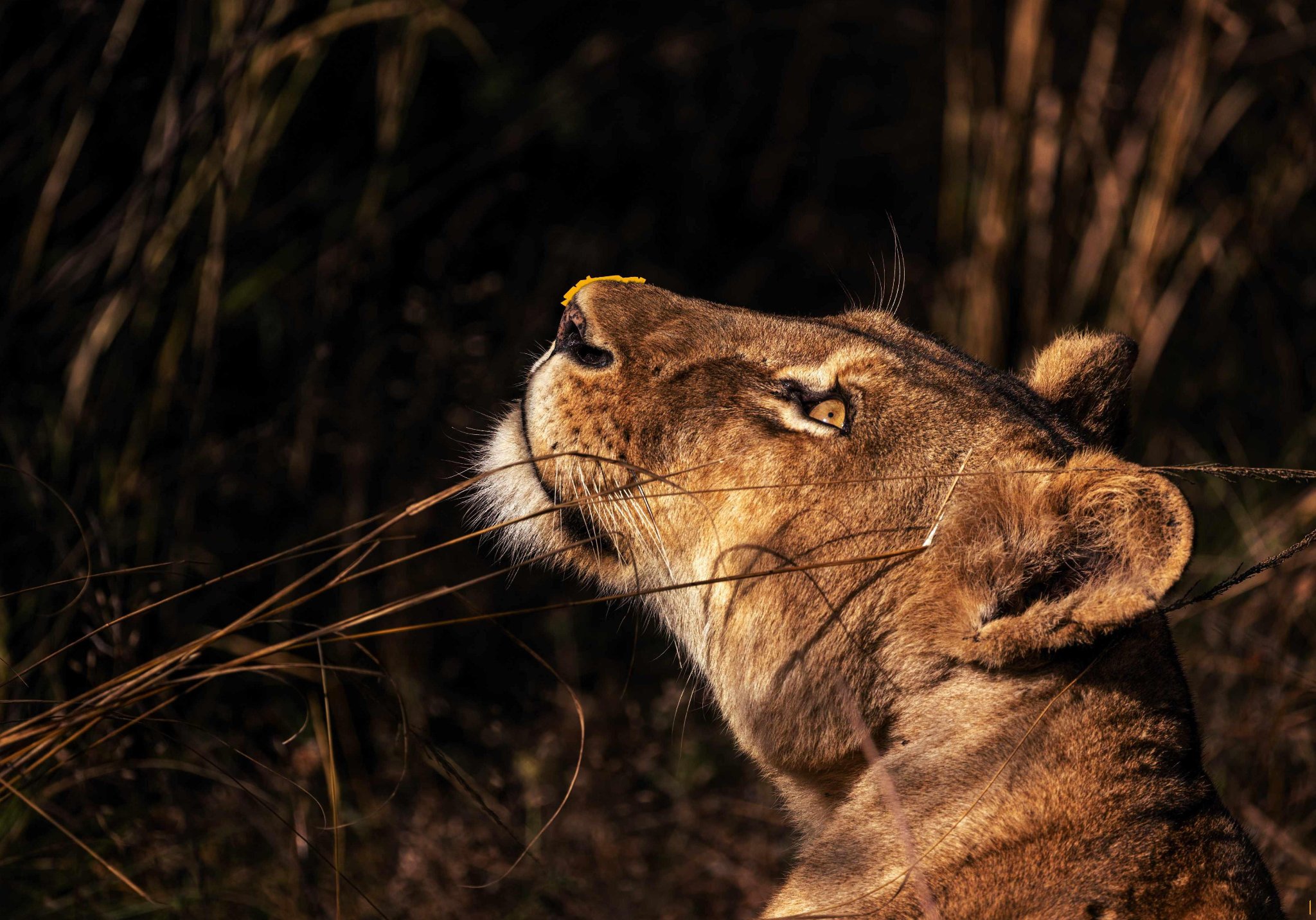
Survivor
Six years ago, a poacher’s snare robbed a lioness of her leg. Against the odds, she lives on in Kafue National Park, Zambia.
THE SHRILL CALLS OF CICADAS RESONATE through the heavy air as the woodland behind me shimmers in the rising heat of the day. A ring-necked dove, unseen in the canopy, urges me to “work harder, work harder, work harder,” but my damp shirt and red skin argue that I already am. The dove wins and I continue searching the long, yellow grass that has thwarted my efforts for hours.
Somewhere in that grassland is the legendary lioness that has brought me to this remote corner of Zambia. She is an indomitable survivor, a warrior who is a testament to the resilience and fortitude of wild animals and the people who make it their duty to protect them.
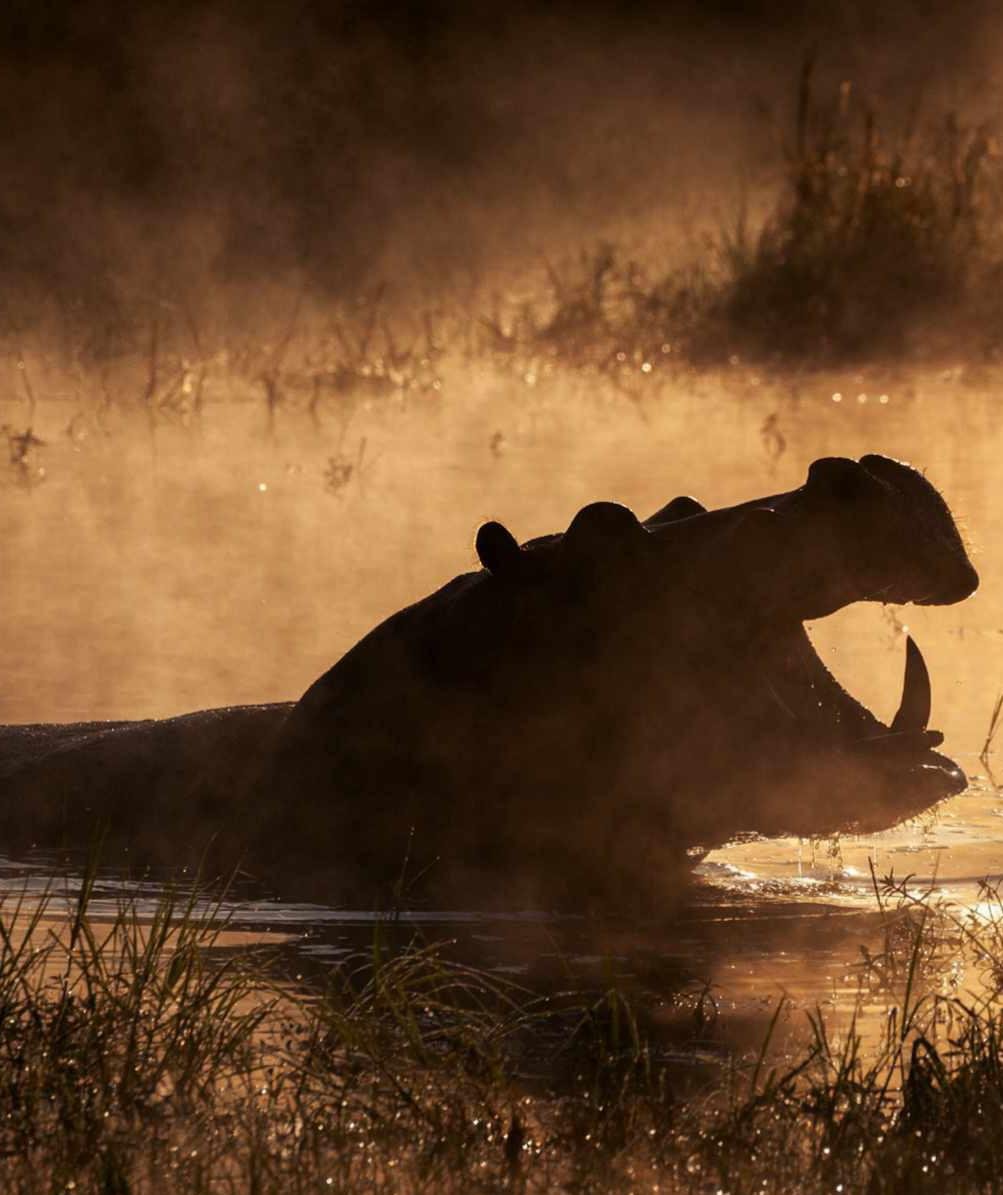
Her name is Tripod, and her home is a veritable Eden. She lives in Kafue National Park, a wilderness of 22,400km² (a similar size to Wales) blanketed in vast swathes of woodland interspersed with a mosaic of grasslands, wetlands and floodplains and cleaved in two by the lazy oxbows of the Kafue River. Her pride’s territory lies to the east of the river, where hippos, crocodiles, water birds and a rich bounty of antelope are attracted to an expansive lagoon that holds water throughout the year. Taking in such beauty and abundance, it’s difficult to conceive that below the surface lies a problem, malignant and widespread, that nearly cost Tripod her life.
In 2016, Tripod was caught in a poacher’s snare. This one was a particularly brutal trap in which a tree is bent and secured to the ground with a winch cable. When an animal steps on the trigger, the tree is released, tightening a wire noose around the victim’s leg and hoisting it into the air where it hangs upside-down and eventually dies.
AN ANIMAL AS POWERFUL AS a lion may break free, but the resulting injuries can be horrific. For Tripod, the snaring led to the loss of the lower part of her right hindleg. Robbed of her speed and stealth, she is today forced to hop; a slow, unsteady and exhausting gait that announces her presence with an audible thud, thud, thud. Gone is her ability to silently slink through long grass or chase down fleet-footed prey. Even keeping up with her pride is difficult.
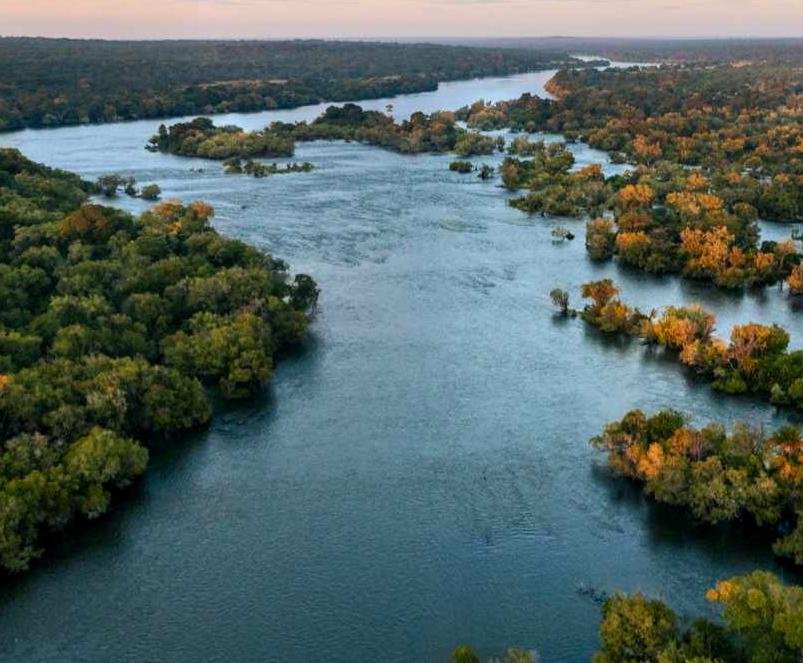
THE QUESTION OF HOW TRIPOD has managed to survive in a wilderness where the law of nature dictates that only the strongest and fittest can has been doing laps in my mind for months. It is why I am spending weeks sweating in the Zambian sun, looking for answers.
There is movement in the long grass. I glimpse a tawny coat and the twitch of a black-tipped tail and all at once Tripod strides forward, head and shoulders visible, into the clearing. She stands proud, regal and defiant, eyeing me warily from only 10m away. In this moment, there is no sign of her injury. She is just a wild lion living in a wild place, as lions have done for millennia, but the paradigm shifts as she walks onwards. Her front legs move with confidence and grace, but her back leg has to hop, catching the full weight of her hindquarters with every step. My heart goes out to her as she flops in the shade of an ebony tree. She seems so vulnerable, so alone in this vast wilderness. Where is her support, her safety, her pride?
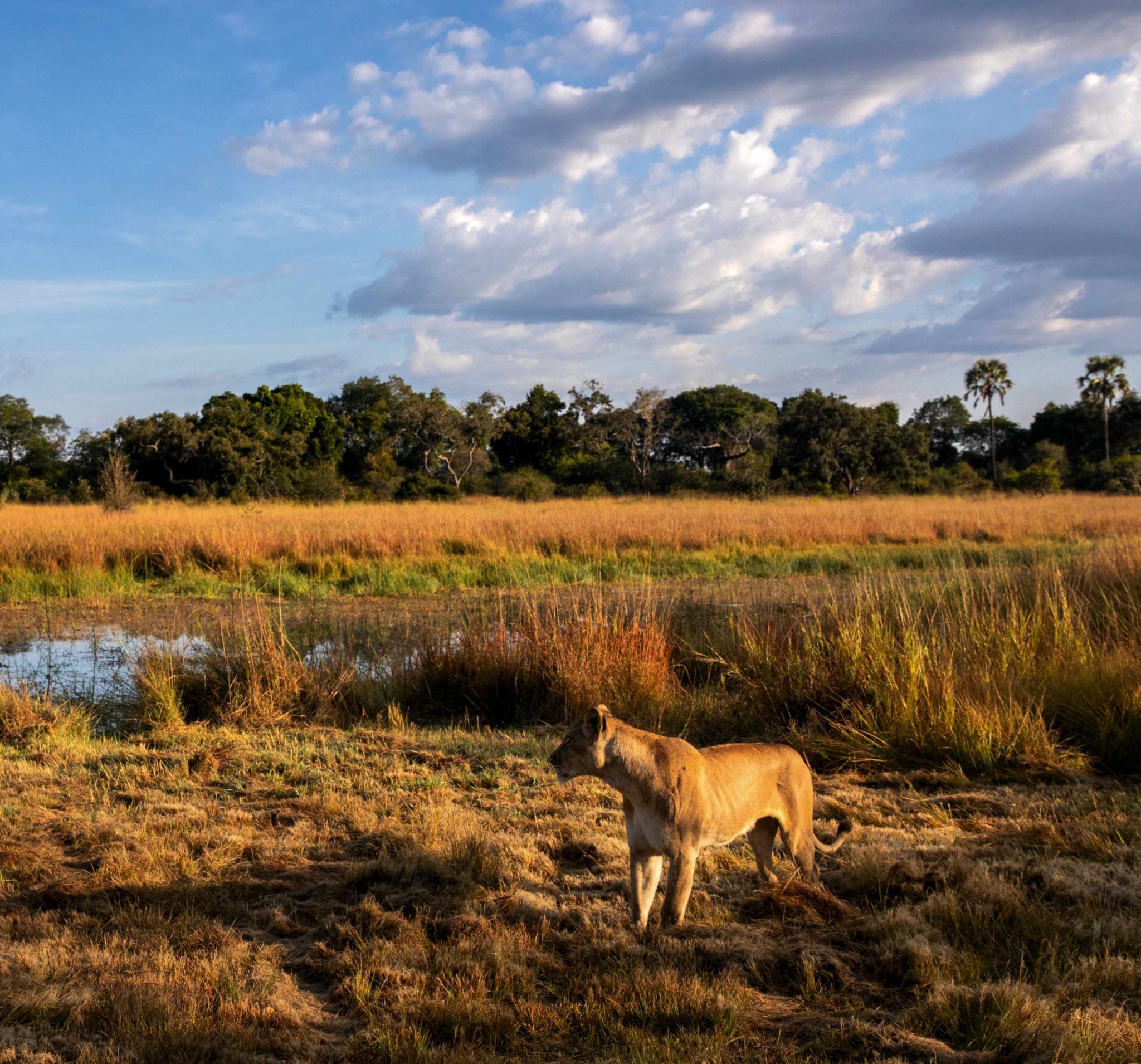
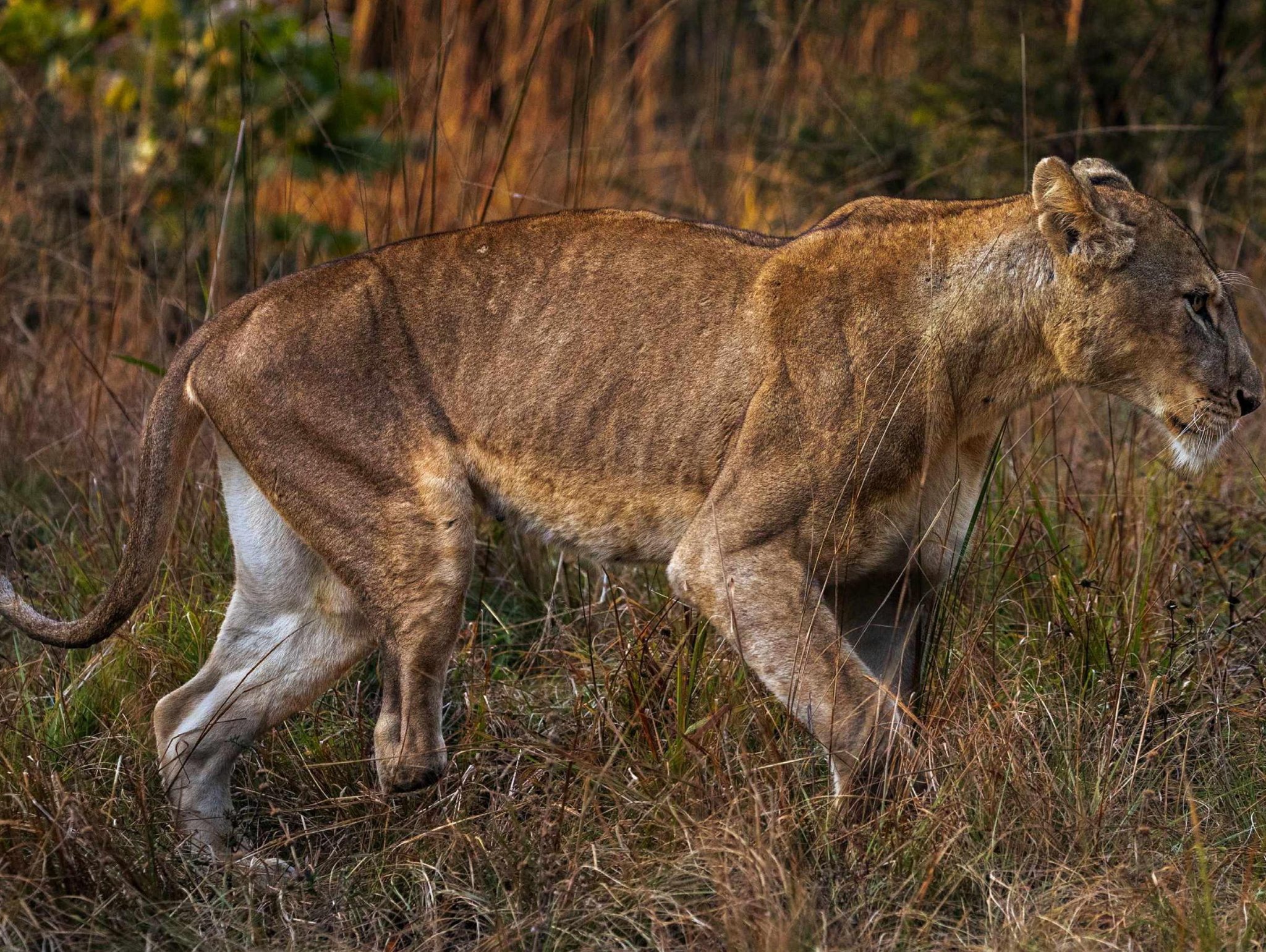
The answers are close at hand. Sitting beside me in the four-wheel drive is Phil Jeffery, safari guide and co-founder of Musekese Conservation. Set up in 2017, the organisation partners with the Zambian Carnivore Programme, in collaboration with the Department of National Parks and Wildlife, to protect Kafue through a combination of habitat management, engagement with local communities, research projects and law enforcement, including anti-poaching measures.
“Her small but loyal pride are an efficient unit and make regular kills, sharing the spoils with Tripod”
PHIL EXPLAINS THAT VETERINARY intervention can be possible when a lion is discovered in a snare – as was the case in 2017 with a lioness from the same pride, now sadly presumed dead. That Tripod has survived without such treatment makes her story all the more remarkable.
Key to her success has been her adaptability. “She has altered her hunting techniques – she ambushes prey more like a leopard,” says Phil. “She also does a lot of scavenging – there’s an abundance of leopards here so she scavenges their kills.”
Added to that, and even more vital, has been the support of her small but loyal pride, comprising her sister and two subadult females. They are an efficient unit and make regular kills, sharing the spoils with Tripod if she is within vocal distance. And finally, there are the anti-poaching teams, who patrol the land and air, identifying criminal trails and camps. “They make sure that Tripod is not only free of other snares, but also that she has a viable prey base to increase her chances of survival,” says Phil.
There can be nothing as timeless and wild as a lion’s roar on a moonless African night. Tucked up in bed, I hear two lions roaring near the camp, so deep and loud and resonant that the very air seems to quake. It’s been two days since that first sighting of Tripod and I’m inexplicably certain that one of the roars belongs to her. A few hours later, with just a hint of light in the sky, Phil and I are straining our eyes for tracks in the headlights when two animals materialise from the gloom ahead. It’s Tripod, and she has company – one of two young males who are staking their claim in the area and have just ousted the previous ruling coalition. The pair glance in our direction, then continue on their way. This apparent courtship explains Tripod’s absence from the pride, and I realise that at the last sighting her beau was probably lying nearby, concealed in the long grass.
“She has just stepped into the limelight as an ambassador for the fight against poaching”
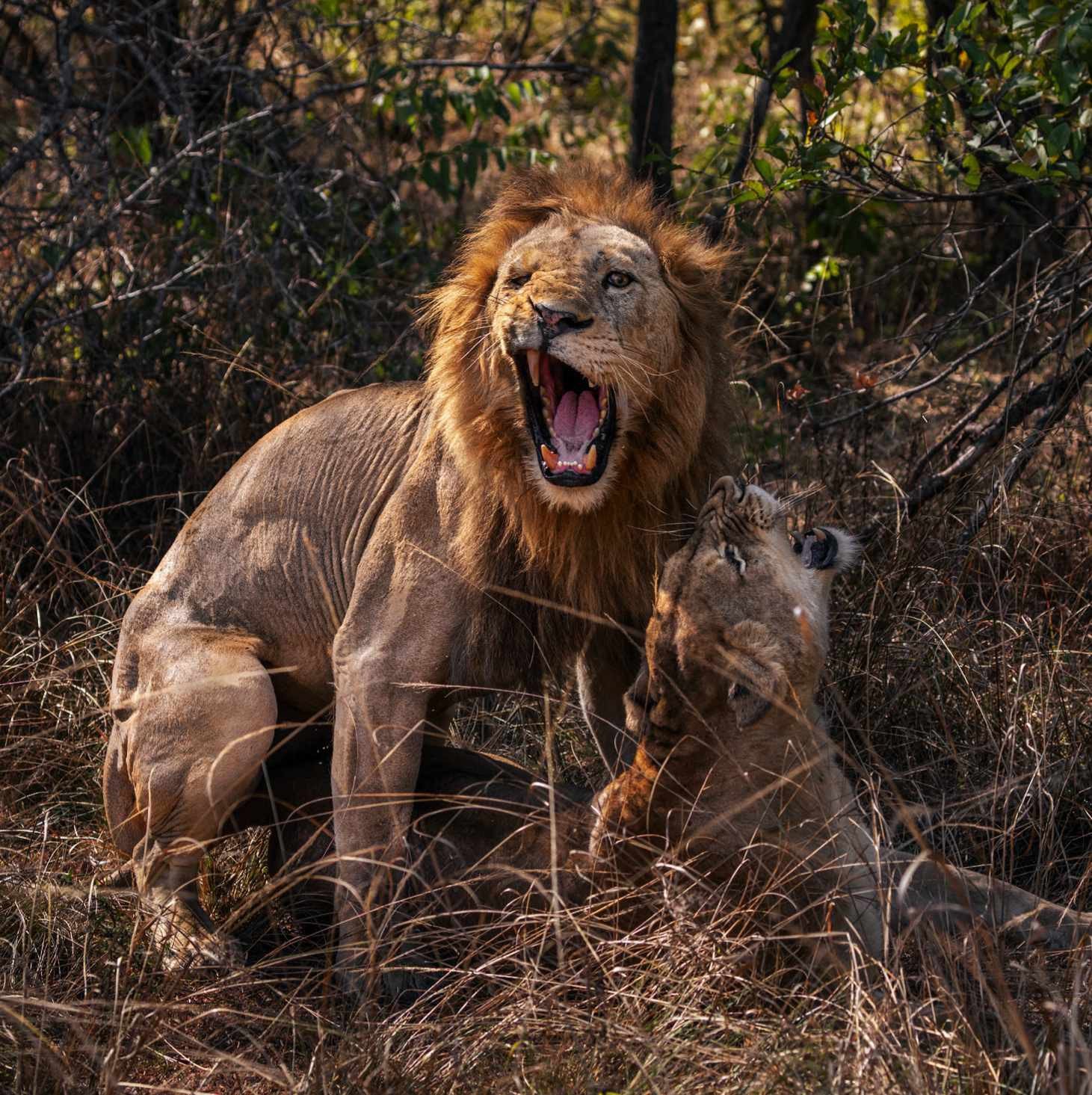
A shaft of golden light slices through the cool morning air and the lions are briefly illuminated in its glow. I’m struck by an uncanny metaphor: if Tripod is mating and conceives, then she has just stepped into the limelight as an ambassador for the fight against poaching. They turn from the road and enter a clearing, by which time the sun has risen fully. Tripod springs in front of the male, turning in tight circles, her tail flicking his face. She’s more nimble than I expected, and clearly knows how to flirt. She lies down and he mounts, snarling and baring his teeth as he bites the back of her neck. Seconds later, he leaps away as she spins on the spot to swat his face with a sharply clawed paw. Phil and I look at each other, astounded: is Tripod a mother-to-be?
TRIPOD’S FUTURE IS TIED UP with that of the park she calls home. Musekese Conservation has done good work in securing large parts of the park, but the safeguarding of Kafue as a whole lies with African Parks. In July 2022, this NGO was awarded a 20-year mandate for the management of Kafue.
Project lead Craig Reid gives credit to the Zambian government for what he describes as visionary commitment to leverage Kafue as a national asset. “But by far the most significant issue remains inadequate law enforcement at the scale required. To combat that, we’re now buying vehicles and new firearms, and will recruit another 80 scouts before the end of the year.”
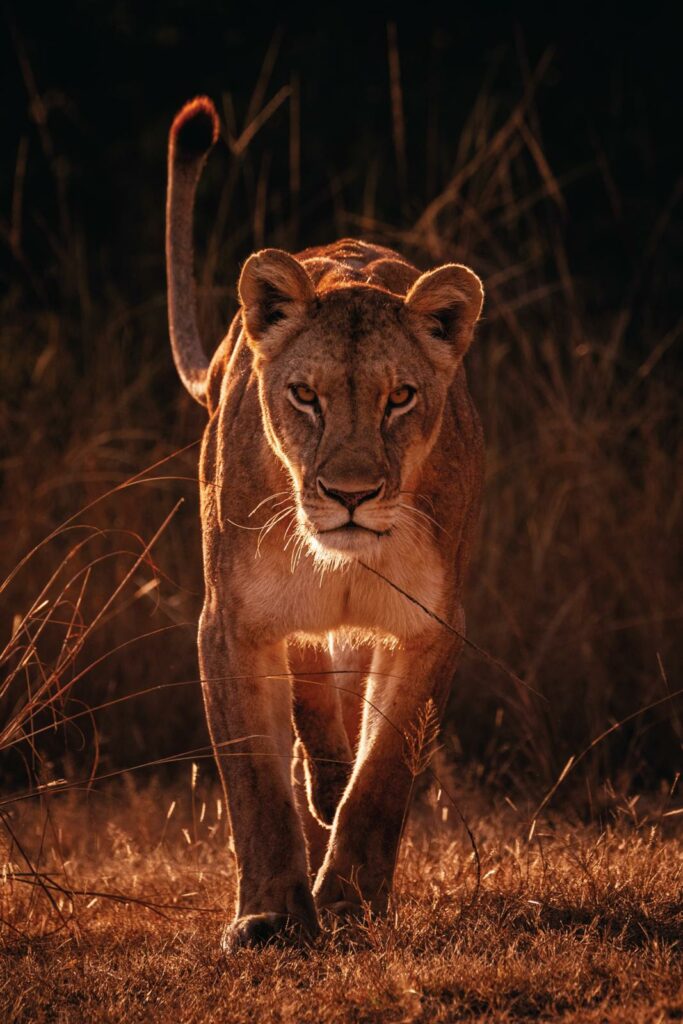
As one of the largest protected areas in Africa, Kafue poses a significant conservation challenge. Its unfenced boundaries border Game Management Areas (GMAs), which act as buffers between the park and human settlements. “A lot of the GMAs have challenges of illegal settlement and that’s reducing the inherent benefits that normally accrue to the local communities,” says Craig. To address the problem, a community engagement team has been developed to work on enterprise and education initiatives.
My final afternoon in Kafue is spent sitting with Tripod’s pride. She’d mated with the male for three days and he and his brother moved on two days ago. She will likely now be looking for her sister, so we wait in the hope that she turns up. The three lions suddenly lift their heads, ears forward, eyes staring intently to the north. We hear it too, not a bellowing roar but a subdued and plaintive moan repeated over and over again – alion’s contact call. It must be Tripod.
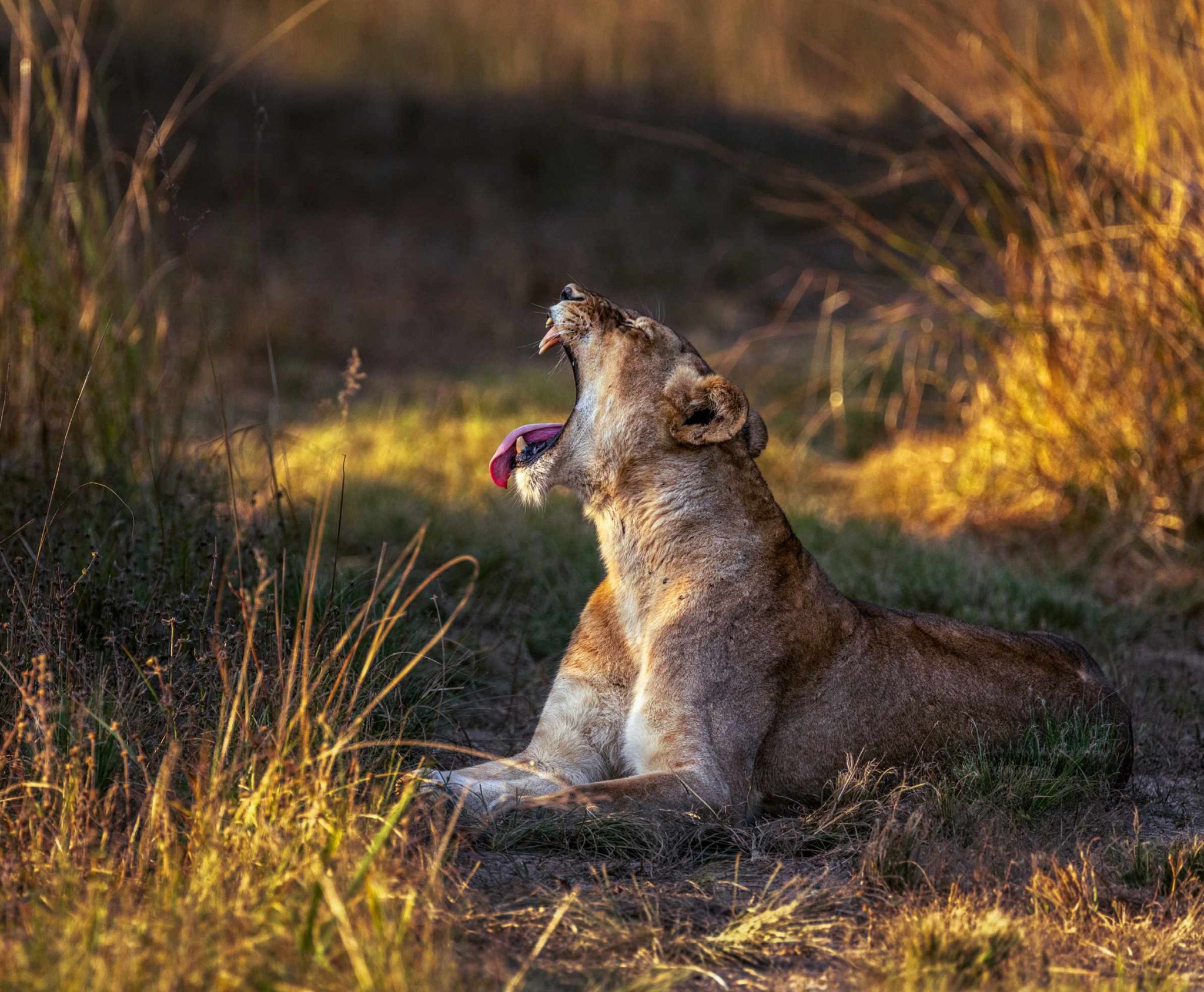
WE WAIT FOR HER SISTER to respond, but she simply lies and listens. We drive in Tripod’s direction and find her on the road less than 1km away, exhausted. She can only walk 20m or so at a time, then stops, rests and calls. She must have been on their trail for days. She reaches a fork in the road: left will take her to the pride, right will lead her away from them, but she is upwind and has no way of knowing which path to take. Devastatingly, she heads right.
A little further and she flops down again, calling and looking nowhere in particular. She heaves herself up and leaves the road, now heading towards her family. Our spirits buoyed, we loop back around to the others to await her arrival. Seeing her sister at last, Tripod speeds up, though the effort it takes is clear to see. I raise my camera in anticipation of the affectionate welcome but… nothing. The other females don’t so much as stand up. Tripod collapses on her side, finally able to rest. My heart cries out when, five minutes later, her sister stands and walks effortlessly down the road, followed by the other females. Tripod heaves herself to her feet once again and hobbles after them. They pause, letting her catch up, but as she lies down again, they continue along their way. This time she just sits and watches them disappear into the fading light.
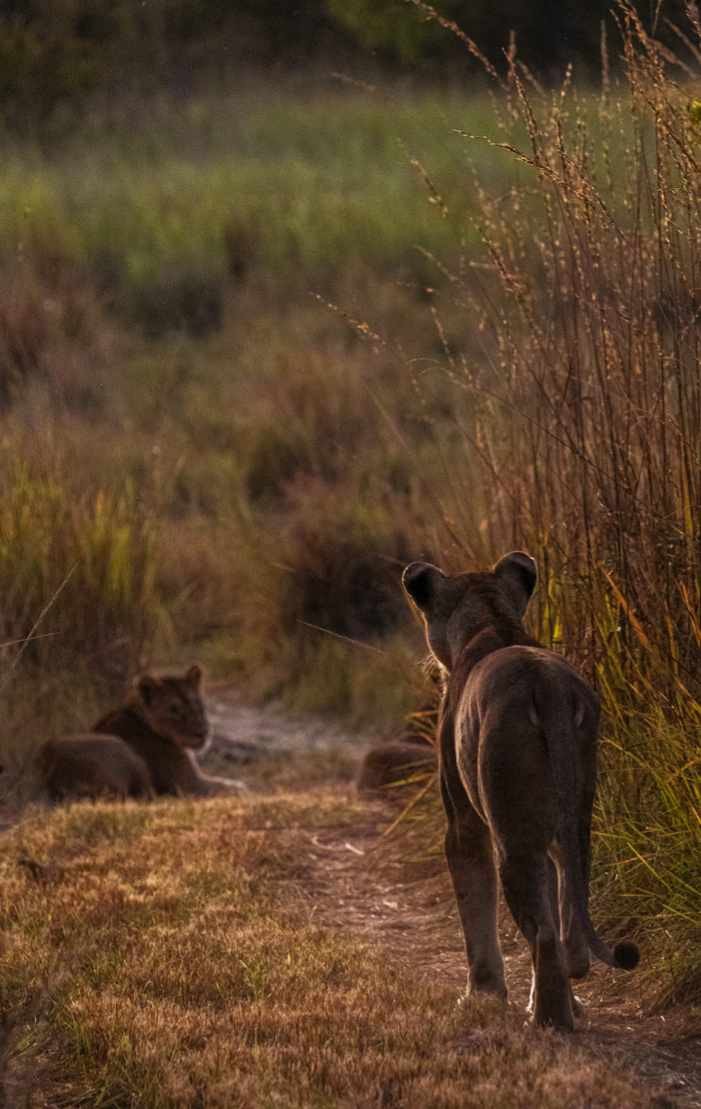
There is no room for sentimentality in nature. Survival is all that matters; emotion does not blur judgement. I’m left wondering what Tripod’s prospects will be as a mother. If she has cubs, she will isolate from the pride for six to eight weeks. She will have to hunt and scavenge for herself, as well as protect her young from danger. Yet this hero lioness has prevailed against all the odds thus far. I can only hope that she somehow finds a way.
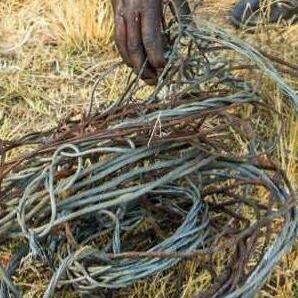
IN NUMBERS
Enforcing the law
Musekese Conservation’s anti-poaching measures are protecting lions in Kafue
6 anti-poaching teams supported
274 wire snares removed
85 poachers arrested
2,000 kg of illegal bushmeat recovered
18 firearms recovered
15,500 anti-poaching patrol days
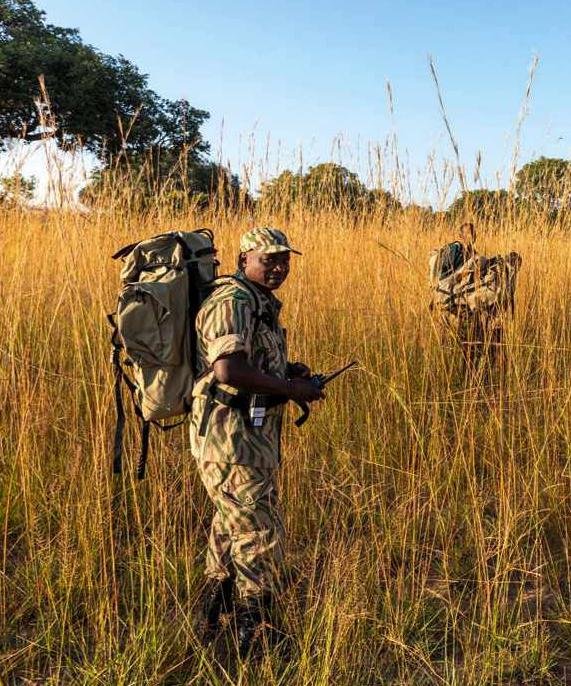
OTHER THREE-LEGGED LIONS
Snared but surviving
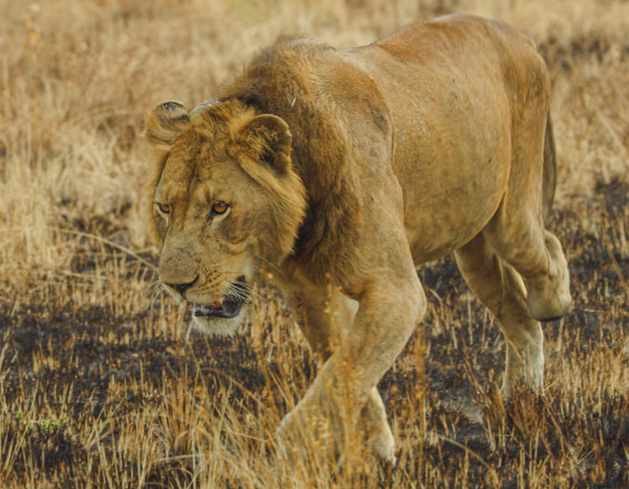
Jacob Queen Elizabeth National Park, Uganda
In August 2020, Jacob stepped into a wheel trap, also known as a bear or gin trap, while in the Democratic Republic of Congo (his territory crosses the international boundary). He was given veterinary assistance once back in Uganda and made a rapid and remarkable recovery. He now takes part in hunts with the pride and has even been seen mating with the females.
Clarence Murchison Falls National Park, Uganda
In 2011, Clarence was caught in a poacher’s snare and, though he managed to escape, the resulting injury was so severe that the decision was taken to amputate. His recovery was astounding and he remained a dominant pride male until 2014 when he was killed by a buffalo.
Tripod Male Kafue National Park, Zambia
Tripod Male was dominant in the same range as lioness Tripod for a number of years. In 2017, he lost his rear right foot to a snare. Despite the injury, he held his territory with his coalition partner for another four years until finally being ousted by two younger male lions in April 2022.
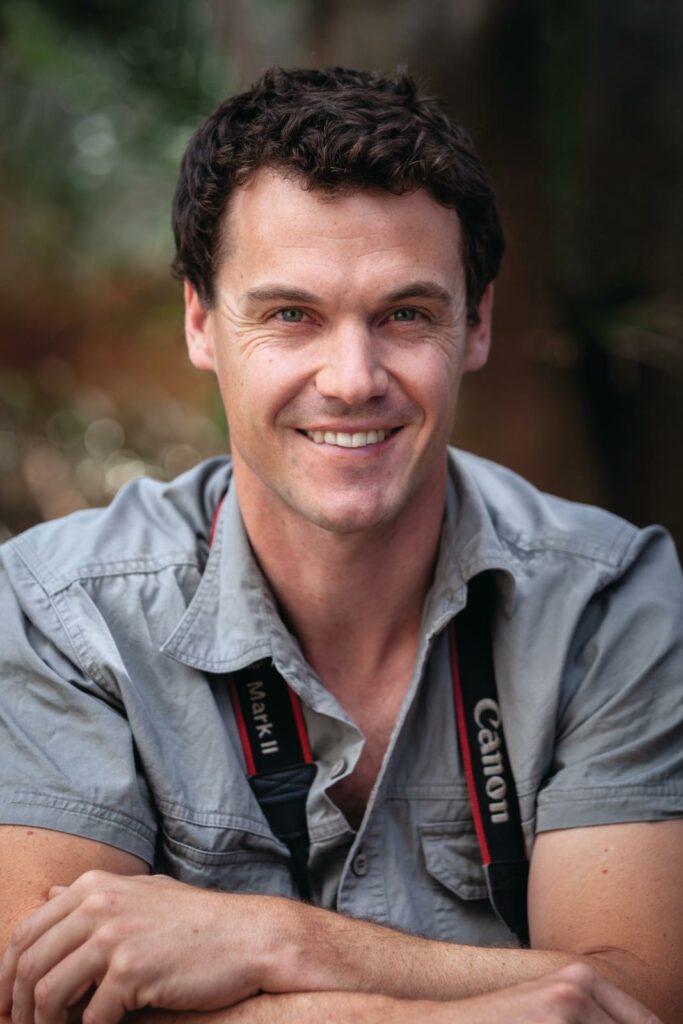
ABOUT THE AUTHOR
Mike Dexter is a professional wildlife photographer and photographic safari guide based in South Africa. Find out more about him and his work at mikedexter.com.
